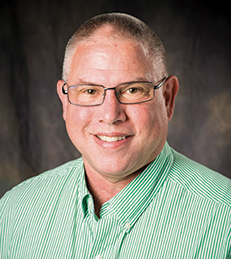

PLACES Annual Holiday Party for Residents, Clients & Tenants
Thursday, December 7, 2017, 5:30–8pm
Kohler Banquet Center, Lincoln Room
4572 Presidential Way
Kettering, Ohio
Warning Signs & Symptoms of Mental Illness
If several of these signs or symptoms are present, it may be time to follow up with a
mental health professional.
» Social withdrawal and loss of interest in others
» Drop in functioning at school, work or social activities, such as quitting sports, failing in school or difficulty performing familiar tasks
» Problems with concentration, memory or logical thought and speech that are hard to explain
» Increased sensitivity to sights, sounds, smells or touch; avoidance of over-stimulating situations
» Apathy — loss of initiative or desire to participate in any activity
» Feeling disconnected from oneself or one’s surroundings; a sense of unreality
» Illogical thinking — unusual or exaggerated beliefs about personal powers to understand meanings or influence events
» Nervousness —fear or suspiciousness of others or a strong nervous feeling
» Unusual behavior – uncharacteristic, peculiar behavior
» Dramatic sleep or appetite changes or decline in personal care
» Mood changes — rapid or dramatic shifts in feelings
– Source: American Psychiatric Association
Social Work Instructor Joins Board

Doug Keown, Director of Field at the Department of Social Work at Wright State University, joined the board of PLACES in July. A graduate of Wright State with a B.S. in psychology, Keown teaches Bachelors and Masters level courses in social work. He joined the university in January 2015.
Originally from Columbus, Keown spent many years in Florida, earning his MSW degree from the University of Central Florida in 1997. He has held a number of jobs in for-profit and non-profit behavioral health settings, including residential treatment for children and community health programs. He served four years in the Navy, doing a tour in the Middle East, and later served as officer in charge of Signals Intelligence based in Orlando.
BBQ lovers might be interested to know that Keown developed the Smokey Bones concept and menu for Darden Restaurants, Inc. during his days in Florida.
Local Employers Who Help
What does it take to successfully employ someone with a mental illness or disorder? “It takes cooperative management of employment,” said Jeff Stokoe, PLACES’ residential services coordinator. “Employers face similar challenges dealing with mental illness as they do for physical handicaps.”
Here are some area companies that have a good record of employing people with behavioral and development disabilities:
» Wal-Mart
» Meijer
» Royal Oak Recycling
» Express Employment Professionals
» Wheat Penny Restaurant
» Professional Maintenance of Dayton
» Salvation Army Thrift Stores
» University of Dayton
The Changing Face of PLACES
Mental illness diagnoses are increasing among the young.

Some adult care facility residents have called PLACES their home for the past several decades. In a few cases, they have remained at PLACES until the end of life. Now staff is faced with the challenge of younger referrals (ages 18 to 24) filling the spots that older residents have occupied. While some professionals who work in the behavioral health sector say that younger referrals tend to be more ill than older residents, others disagree. But everyone acknowledges that younger populations bring different issues, and PLACES is changing to accommodate them, such as transforming one of its adult care facilities into all-male housing.
“We need more emphasis on early intervention, education, vocational skills and dealing with pregnant mothers,” said Janet Johnston, PLACES’ director of client services. “On the education and vocational side, we may have more people who are employed. In fact, the number of people in our adult care facilities who are employed is increasing.” PLACES works with organizations such as Eastco to provide supportive employment opportunities. (See article below.)
When do disorders tend to appear?
“Adolescence is a hugely stressful time in people’s lives,” said new board member Doug Keown, on the faculty of Wright State University’s Department of Social Work. “The middle high school years are often when we observe the full blown effects. Some people don’t do that transition well [from youth to teenage]. Sometimes mom and dad say it’s time to get out. It can be an awkward time, and that’s when we see a bipolar disorder and depression.”
The World Health Organization conducted 85,052 interviews in 16 countries, including the U.S., to examine age of onset for various mental disorders. The WHO survey found that impulse-control disorders have the earliest onset. The mean ages when disorders tend to appear are shown below:
Mental Disorder : Age of Onset
Attention deficit/hyper- activity disorder (ADHD) : 7 – 9 years
Oppositional defiant disorder (ODD) : 7 – 15 years
Conduct disorder (CD) : 9 – 14 years
Intermittent explosive disorder (IED) : 12 – 21 years
Some anxiety disorders — the phobias and separation anxiety disorder (SAD) — also tend to occur at an early age, between 4 and 20. Other anxiety disorders (panic disorder, generalized anxiety disorder and post-traumatic stress disorder) tend to develop considerably later in comparison, with wider variation across countries.
How is a mental illness diagnosed?
Using the Diagnostic and Statistical Manual of Mental Disorders, Fifth Edition (DSM-5) as a guide, doctors base their diagnosis on the signs and symptoms observed in the individual patient.
Can mental disorders be inherited?
The chance of having a mental disorder is higher if others in the family have the same disorder, although the severity can vary quite a bit. In general, mental illness does not follow the typical patterns of other inherited diseases.
Heredity tends to play a large part in determining a person’s susceptibility to alcohol and drugs. Boys are four to five times more likely to abuse alcohol if their parents do.
Can genetic tests predict mental illness?
Genetic tests are useful as predictors since a person’s environment and individual experiences play an important role in their psychological development. Influential factors include trauma, emotional harm and substance abuse.
What can family members do?
If you observe behaviors you think may be indications of a mental disorder, try to keep the lines of communication open and honest. Make yourself available to your child or teen. Let them know they can talk to you about anything. Share that you had questions and fears when you were growing up, too. Adolescence can be a difficult time for any teen, due to hormonal changes, gender identification and evolving relationships with friends and family. But severe, dramatic or abrupt behavior changes may signal a more serious issue.
It’s important to understand that mental disorders among youth are not uncommon and can be treated. Healthychildren.org, a website sponsored by the American Academy of Pediatrics, suggests you speak with your child’s pediatrician, school representatives, leaders where you worship, or your local health department to find what information is available.

Gainful Employment Brings Mental Health Benefits

“We all need a reason to get up in the morning. Work does that for us.” So says Steve Cope, program director at Eastco, a component of Eastway Behavioral Healthcare that offers training and employment to people diagnosed with mental illnesses.
“We often see that people try to shelter those with behavioral problems from the big bad world,” he said. “But working and getting a paycheck adds to self-esteem. Learning to get along with coworkers can make a positive impact on people’s mental health. I’ve seen work help tremendously in cases of depression and anxiety in particular. If people are on the proper medication and seeing their healthcare providers, anyone can overcome their challenges.”
Eastco provides 12 week training programs so that PLACES residents in adult care facilities, tenants and clients can learn a job in packaging, grounds maintenance, document scanning and other services. Then Eastco puts them to work in a transitional position, with the goal of finding ongoing employment in the community. Because employees have a 12 week work history, Eastco can vouch for them with prospective employers.
Eastco typically helps 40 or 50 people each year, including a number from PLACES. Community mental health centers and Goodwill Easter Seals of the Miami Valley also provide employment assistance. Mrs. Mays, an employment specialist there, has helped PLACES clients and tenants find jobs this year in manufacturing, food service, janitorial services, retail and hotels.
Criminal history – typically from substance abuse – is a big barrier to employment, Mays explained. Yet she has seen people find jobs in just a month if they take the initiative to pursue opportunities.
Cope measures success by the number of people his organization can help get and maintain jobs in the community for six months or longer. “We’ve been successful because we provide real world consequences if people don’t show up for work,” Cope said. “Employees can be written up, even suspended, but we give them quite a few more chances than another employer might.” Workers also know they have a safe place to call if they run into problems with supervisors or coworkers.
Mental illness can affect anyone, professionals and hourly workers alike. Cope told the story of a PLACES resident diagnosed with depression and anxiety who had been an executive with an advertising agency in Denver about 10 years ago. This fellow wanted to get his life back together, and a job at Eastco allowed him to put some fresh work experience on his resume. The last Cope had heard of him, his recovery was successful.
During the past 18 months, Opportunities for Ohioans with Disabilities, with whom Eastco and Goodwill both work, has given greater focus to the issue of transitioning people from youth programs into adult services to keep them from falling between the cracks. Mays also cited Daybreak and Goodwill’s own mentoring program, which conducts outreach at community festivals, as helping young people with mental disorders get better connected with support.
“What’s good about young people is that they are sometimes more willing to listen,” Mays said. “They’re not set in their ways. Plus they’re more tech savvy, which can appeal to an employer. They have fewer gaps in employment to explain as well.”
When it comes to employing younger workers with disabilities, some employers appreciate their youthful enthusiasm, while others prefer experience. “Kids may have no idea of employers’ expectations, while older folks may have had a job ten or fifteen years ago,” Cope said.
One thing Cope would like to get across is that anybody can work in some capacity, no matter what their disability. There are employers willing to work with people on any level. Also, working doesn’t mean giving up all government benefits. “People think if they work one day, they’ll lose their Social Security disability, but that’s not true,” he said.
Don’t Let Winter’s Chill Get You Down
Winter can present extra challenges for people diagnosed with mental illness. Here are some tips for staying safe during the season.
Stay indoors whenever possible. Exposure to extremely cold weather can worsen symptoms of mental ill health, such as mood and energy levels, and even cause hypothermia.
If you cannot avoid going outdoors, watch out for ice, snow and wet surfaces. Accidents are more likely in the extreme cold, particularly if you are experiencing symptoms or side effects of medication.
Medication
» Be sure you have adequate supplies of medication. If unpredictable weather results in you running short, speak to your support worker or doctor right away.
» Taking medication and exposure to extreme cold can affect both your real and perceived body temperature. It also can increase the risk of forgetting to take medication. A pill box can help you remember to take each dose.
» Check your storage conditions for prescribed medication. Avoid damp, very cold places.
Food and drink
» Stock up on foods that have a long shelf life and are easy to make, such as dried or tinned food and frozen meals.
» Drink hot, non-alcoholic fluids regularly, such as tea and soup.
» Prepare and consume food and non-alcoholic fluids at the best times for you. It’s better to eat and drink when it suits you, rather than not at all.
Keep in touch and informed
» Isolating in extreme cold can make symptoms of mental ill health worse. Keep in daily contact with friends, family and support workers.
» Turn on the TV or radio to find out weather reports.
» If extreme cold stops you from going to recovery groups, call peers for support.
» Look out for people who are vulnerable. Can you think of anyone who may need a supportive phone call or message?
Remember, always contact your doctor if you feel mentally or physically unwell, regardless of the season.


